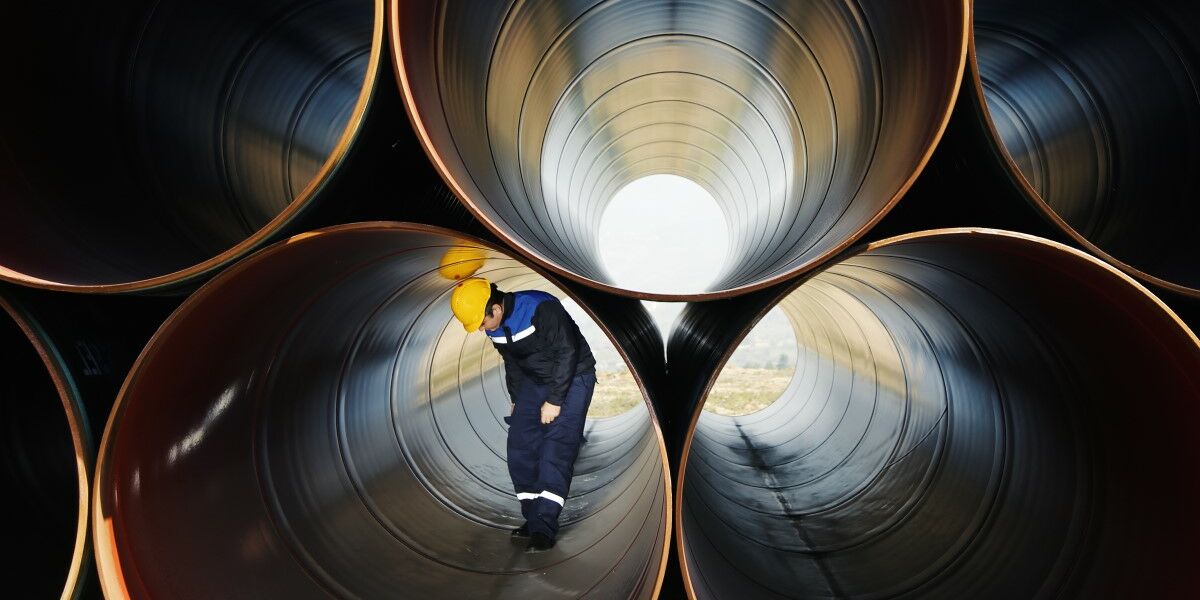Hydrogen hype in the desert

This summer, both Germany and the European Union launched their hydrogen strategies. The EU has announced a 140 billion euros hydrogen plan and Germany a nine billion euros package. But Europe will need to mostly outsource its hydrogen production needs – and all eyes are on the Middle East and North Africa (MENA) for imports.
Europe is leading the evolution of new energy systems and has deployed ambitious targets for weaning the industry sector off fossil fuels. The European Commission has committed to fully decarbonizing the European Union’s economy by 2050, to make it the “first carbon-neutral continent worldwide”. For economies such as Germany’s, this target cannot be reached simply by increasing the use of electrical power in transport and other fossil-fuel uses. In Germany in particular, automotive manufacturing (and its appetite for steel) and chemical processing are the darlings of its industry, and both very carbon-intensive.
But an answer to this challenge is emerging and has been dubbed “green hydrogen”. This is produced through the electrolysis of water powered by electricity from renewable sources. Using this hydrogen for power can be used to reduce the carbon emissions of a wide range of industrial production processes. For example, hydrogen is currently the most promising solution to replace hard-coal coke in the production of primary steel, making the process free of greenhouse-gas (GHG) emissions.
However, decarbonizing the steel and chemical sectors with green hydrogen would double or triple the demand for renewable electricity – which would be impossible to satisfy without massive imports. This is why the German hydrogen strategy, is reserving two billion euros for the assistance of hydrogen production abroad.
For the Arab World, many questions arise: Are there enough skills, capacities and capital for the region to develop this new energy technology? Could the region produce enough renewable electricity for the electrolysis? And can it set up the infrastructure for transport and export of hydrogen gas?
The MENA region benefits from the highest solar irradiance in the world (incoming and reflective sunlight and strength) and tremendous wind potential, which can produce electricity for the electrolysis of green hydrogen. Yes, the deployment of renewable energy is growing very quickly in the region: It has seen a nine-fold increase of investments just in the past eight years and energy transitions are under way in many countries, with frontrunners being Morocco and the United Arab Emirates. According to estimates, the costs of green hydrogen production in the MENA region could be half those of European production.
However, a realistic look dampens the excitement: Most countries still have less than ten per cent of renewable energy in their electricity power mix. Even if in 2030 frontrunners will achieve 30 per cent, the majority of the electricity will still be dirty. Producing green hydrogen for export would mean that all the available green electricity will be absorbed by the green hydrogen hunger from Europe. Hence, there is a risk that the focus on the domestic energy transitions will wither away. This could pose risks to the nationally determined contributions for the implementation of the Paris Agreement.
Jobs?
Whether jobs will be created in the countries producing this new hydrogen is less than sure. The German strategy argues that “for hydrogen to become a central component of our decarbonization strategy, the entire value chain must be considered.” With these words, Minister for Development Cooperation Gerd Müller has promised knowledge and technology transfer in exchange for green hydrogen. But if the supply chain will require MENA countries to only produce hydrogen gas as raw material, while all the following steps in the value chain, such as chemical processing, take place in Europe, not many jobs or much value will be created in those exporting countries.
How green is this whole idea?
Green hydrogen production requires an energy source, some land, and above all water. The MENA region is the most water-scarce region in the world, with demand exceeding supply by a huge amount in countries such as Jordan. The only water available for production of hydrogen is the salty seawater. However, with desalination plants being very energy intensive, one needs to have a close look at the resource and energy balance.
As for transport, European policymakers tend to see the infrastructure from the MENA region to Europe as a given gift. Existing pipelines from Morocco to Spain, and from Algeria to Italy, that were originally used for fossil fuel gas could be utilized the for green hydrogen gas in the future. But they tend to forget the step before transporting hydrogen gas: the transport of electricity in the MENA region. What is missing is a regional electricity grid. The region’s modernization of electricity grids is moving slowly. Because of conflicts and tensions with neighbouring countries, there are no interconnectors to be found.
In sum, many of the MENA countries are being run over by the European hydrogen rush. For the hydrogen strategy to become both environmentally and socially sustainable, the EU and Germany need to spend a bit more time in coming up with an offer that leads to sustainable growth.
About the Author

Franziska Wehinger was the Director of the Regional FES Climate and Energy Project in the MENA region and helped establish a hydrogen expert group for the region from 2018 to 2020. She is now the head of the strategy department in the presidential office of the Federal Environmental Agency (UBA) in Germany.
About FES Connect
Connecting people, in the spirit of social democracy, we source and share content in English from the German and international network of the Friedrich-Ebert-Stiftung.




